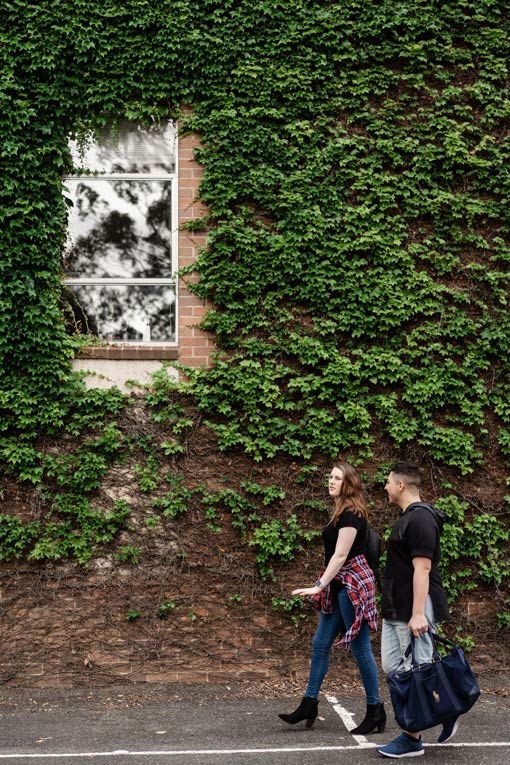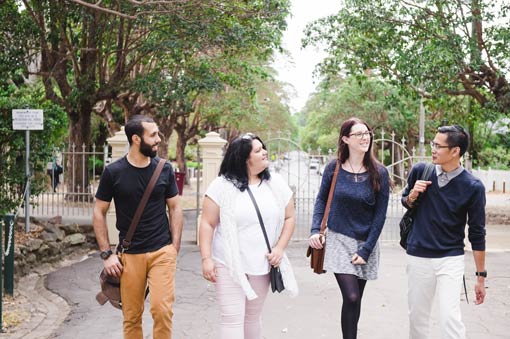The ACU Ethics Hub is celebrating the 30th anniversary of Ex Corde Ecclesiae with a ‘Masterclass on Any Catholic University’, exploring how various member groups are understood in the Catholic intellectual tradition. In this lesson, Professor Ramsay explores the role of international student staff.
Catholic universities are of course a worldwide phenomenon and so have a critical interest in international collaboration and connection. How exactly does this come about?
Internationalisation, global reach and engagement, are necessary tools of modern universities. It is a wonderful thing that what in a former age meant conquest, occupation, unwelcome intrusion is now by invitation, through collaboration and with a view to development and mutual benefit. Catholic universities are of course a worldwide phenomenon and so have a critical interest in international collaboration and connection. How exactly does this come about?
Jesus Christ was born on the outskirts of modern Jerusalem and died in Jerusalem some thirty-three years later. He did not wander far, at least by the standards of the first generation of his followers. These he cast very deliberately to the ends of the earth, with their eventual resting places scattered around the Mediterranean but also in India, Scotland, North West Spain. The message was clear from the beginning: this is to be a truly global faith, and its message is for all humanity, irrespective of country or race.

“The message was clear from the beginning: this is to be a truly global faith, and its message is for all humanity, irrespective of country or race.”
As a community of limited earthly beings, the Church has often failed to be the Church Christ intended. But one thing that has been done spectacularly well at various times is the grafting on of faith to the life and customs of diverse cultures on every continent. Greco-Roman philosophy and theology did indeed accurately capture the truths of the faith in the early centuries, but almost immediately it spread uncontrollably, meeting, adopting, adapting, giving to, borrowing from the cultures and philosophies of the world. It is international by its nature.
Universities obviously have ‘universe’ built somewhere into their conceptualisation, and the idea from the beginning was – we are not local training schools, but we teach public knowledge that can express and defend itself against knowledge-claims made anywhere, worldwide. This means there must be the to and fro of ideas, scholars whose minds belong not to one place but to the world, sharing and cross-fertilisation of teaching and learning, discoveries and inventions, across times and places; a global community of learning open to all.
Students are one part of the Catholic university’s international engagement, but there are other dimensions. If your goal is truth, establishing, explaining and justifying any truth is effective the more cross-perspectives are brought to bear, the more open the discussion, the richer and more diverse the argument. Truth responds to interrogation and questioning from multiple angles, and this suggests that research and scholarship requires not just peer approval but the broadest cross-cultural, cross-national discussion and support.
Secondly, Catholic faith has a particular story in each nation. In Australia, for example, the story is of French and Irish missionary Orders, teaching and nursing, service in the bush, an excellent settlement with the state, new ecclesial and youth movements and contribution from immigrant nations, the growing theological literacy and pastoral involvement of the laity. It is easy to see this as the whole Church context for an Australian Catholic university. But it is only the local end of our context. The more direct experience universities can offer of faith in other lands, the richer grows our understanding and that directly affects thinking and action on the Church and the university’s place within it.
In terms of service, Catholic universities contribute much to the welfare of Australia, but this by itself is not enough. The Church overseas is often the Church in need; particularly in the lands and islands of Oceania there is constant need for service and sacrifice to help the Church where it has less than we have in Australia.
Some universities then see internationalisation as mainly economic gain. Catholic universities see it both as cultural benefit and moral obligation. Everyone settled in a land they love and from which they benefit suffers inevitable short-sightedness about others elsewhere. Australia understands far better than other similar nations that multi-culture is not superficial but is about opening your mind to a new language, new ways of thinking and choosing, seeing yourself through the eyes of others. Universities, as the specialists in intellectual activity and truth-seeking, can lead as flagships here.
Academic life and work that brings cherished and familiar perspectives into fearless debate with what may seem unfamiliar and confronting stands the best chance of advancing truth and harmonising faith with reason. And so being ‘consecrated in the truth’ means Catholic universities liberate themselves from everything that is small-minded in their local identity and open themselves up to global immersion and cultural adventure.

Studying overseas should be about more than just studying. At ACU, you will join an inclusive university that cares about your experience and respects where you have come from. We are a Catholic institution. But we value all faiths and the contribution each of our students can make to the world around them.
There's no need to travel for to find out more about studying in Australia at ACU. Meet one of our staff members in your own country to learn more about our courses, how the application process works and why ACU and Australia are great places to study.